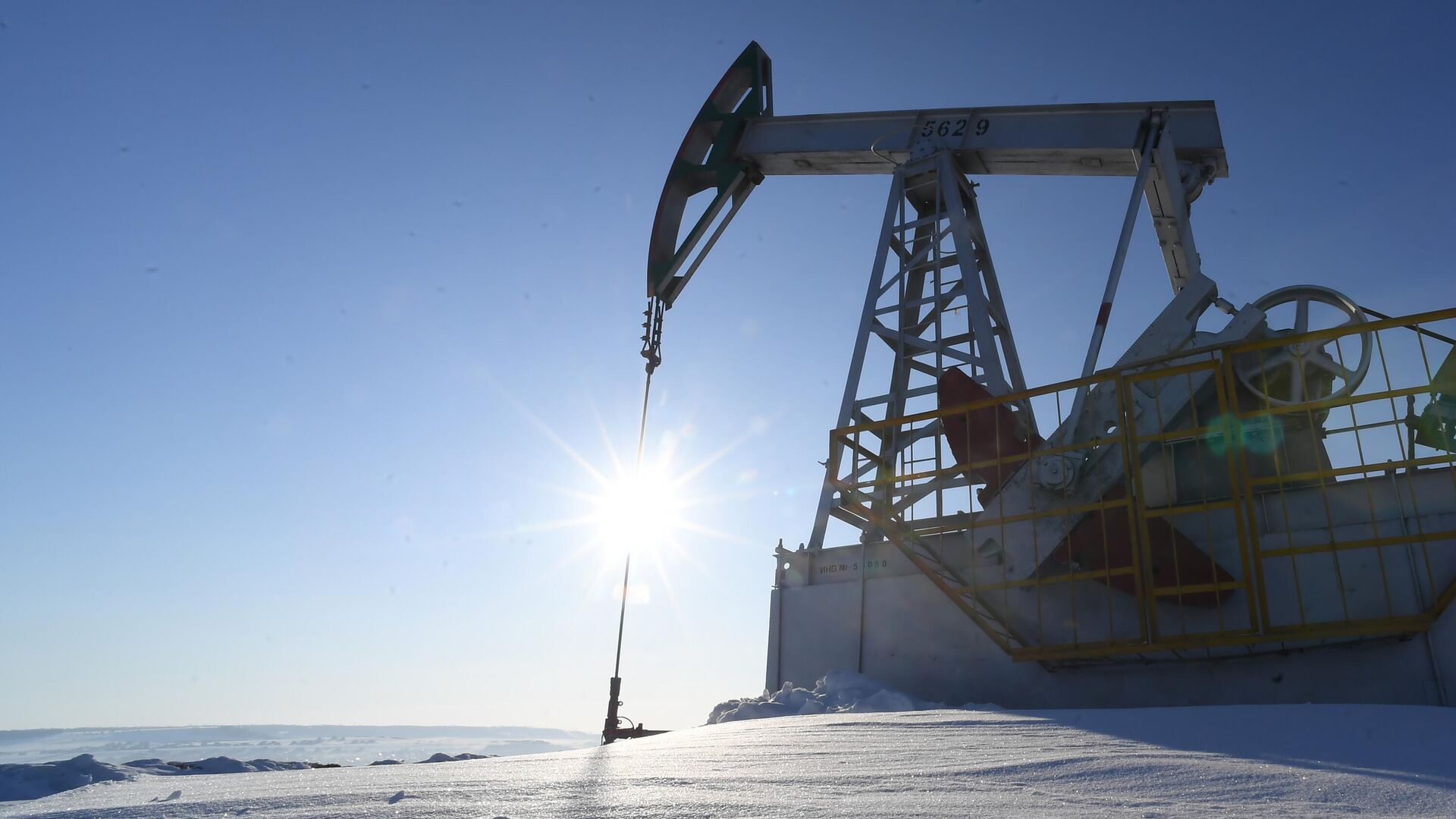https://sputnikglobe.com/20221130/eu-most-likely-to-impose-62-per-barrel-price-cap-for-russia-oil-source-says-1104897531.html
EU Most Likely to Impose $62 Per Barrel Price Cap for Russia Oil, Source Says
EU Most Likely to Impose $62 Per Barrel Price Cap for Russia Oil, Source Says
Sputnik International
MOSCOW (Sputnik) - The European Union is likely to eventually impose a $62 price cap on Russian seaborne oil despite calls for a lower ceiling from Poland and... 30.11.2022, Sputnik International
2022-11-30T13:35+0000
2022-11-30T13:35+0000
2023-04-12T17:15+0000
energy crisis in europe
russia
oil
europe
european union (eu)
https://cdn1.img.sputnikglobe.com/img/07e6/0b/0c/1104045331_0:11:2990:1693_1920x0_80_0_0_bf22c45c86f90bbb7c6667c5b51f3518.jpg
On Tuesday, the Politico newspaper reported that US diplomats had joined EU discussions on the price cap in an attempt to convince the Visegrad Group — the Czech Republic, Hungary, Poland and Slovakia — and the Baltic nations to agree to the amount of $62.Even if EU member states fail to resolve differences regarding the level of the price cap, the European Commission is unlikely to postpone the deadline for imposing embargo on Russian seaborne oil imports, with efforts ongoing to reach a deal as soon as possible, according to the source.Western countries have been seeking ways to limit Russia's income from oil and gas exports since the country launched its military operation in Ukraine on February 24. In September, the G7 finance ministers confirmed their intention to impose a price cap for Russian oil and urged all nations to support the initiative.In October, the European Union introduced the eighth package of sanctions against Moscow, which included a legislative basis for setting a price cap for maritime shipments of Russian oil to third countries. The price cap is scheduled to take effect on December 5, 2022, for crude oil and on February 5, 2023, for refined products coming from Russia.Moscow, in turn, has pledged to altogether stop exporting Russian oil to the countries that impose the price cap.
russia
Sputnik International
feedback@sputniknews.com
+74956456601
MIA „Rossiya Segodnya“
2022
Sputnik International
feedback@sputniknews.com
+74956456601
MIA „Rossiya Segodnya“
News
en_EN
Sputnik International
feedback@sputniknews.com
+74956456601
MIA „Rossiya Segodnya“
Sputnik International
feedback@sputniknews.com
+74956456601
MIA „Rossiya Segodnya“
russia, ban oil, oil price cap
russia, ban oil, oil price cap
EU Most Likely to Impose $62 Per Barrel Price Cap for Russia Oil, Source Says
13:35 GMT 30.11.2022 (Updated: 17:15 GMT 12.04.2023) MOSCOW (Sputnik) - The European Union is likely to eventually impose a $62 price cap on Russian seaborne oil despite calls for a lower ceiling from Poland and the Baltics, which seek to erode Russia's profits, an EU source told Sputnik.
On Tuesday, the Politico newspaper reported that US diplomats had joined EU discussions on the price cap in an attempt to convince the Visegrad Group — the Czech Republic, Hungary, Poland and Slovakia — and the Baltic nations to agree to the amount of $62.
"The EU Commission originally proposed $65-70 per barrel for the price cap on Russian crude. The latest proposal, after the recent negotiations, was at $62. However, specific member states, Poland included, are pushing for further reduction. And the latest talks are near and even slightly below $62, which, I think, is most likely closer to the final number the EU will decide on the price cap per barrel on Russian crude," the source said.
Even if EU member states fail to resolve differences regarding the level of the price cap, the European Commission is unlikely to postpone the deadline for
imposing embargo on Russian seaborne oil imports, with efforts ongoing to reach a deal as soon as possible, according to the source.
"There is a lot of pressure from the Commission to reach an agreement before December 5. And the idea for an extension to the oil embargo date came up during the talks. However, for different reasons it was dismissed for now," the source added.
Western countries have been seeking ways to limit Russia's income from oil and gas exports since the country launched its military operation in Ukraine on February 24. In September, the G7 finance ministers confirmed their intention to impose a
price cap for Russian oil and urged all nations to support the initiative.
In October, the European Union introduced the eighth package of sanctions against Moscow, which included a legislative basis for setting a price cap for maritime shipments of Russian oil to third countries. The price cap is scheduled to take effect on December 5, 2022, for crude oil and on February 5, 2023, for refined products coming from Russia.
Moscow, in turn, has pledged to altogether stop
exporting Russian oil to the countries that impose the price cap.


